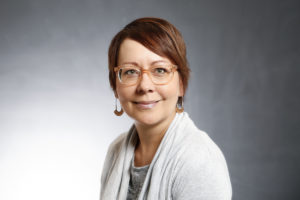Since 2016, Health First has invested $18 million in such programs in Northern Arizona, reaching more than 500,000 people.
But research tells us that much more influences health and well-being. Where we are born, live, study, work and play, as well as our age, can affect our health, functioning and quality of life. These are called the social determinants of health, and they are grouped into five general categories.
- Economic stability. People with steady employment are less likely to live in poverty and more likely to be healthy.
- Education access and quality. Individuals with higher levels of education are more likely to be healthier and live longer.
- Health care access and quality. People tend to be healthier when they have health insurance, nearby health care, a primary care provider and annual health screenings.
- Neighborhood and built environment. Safe, welcoming environments that include pathways, parks, recreation centers and other community gathering places can improve health and quality of life.
- Social and community context. Relationships with family, friends, neighbors and coworkers can have a significant impact on health and well-being. Unsafe neighborhoods, discrimination and poverty can negatively affect one’s well-being.
Since 1980, the U.S. government, under the Office of Disease Prevention and Health Promotion, has set decade-long objectives for improving health and well-being nationwide. Healthy People 2030 is focused on advancing the social determinants of health, health equity and health literacy.
Health First Foundation Northern Arizona has been recognized as a Healthy People 2030 Champion, among the first 104 organizations nationwide to receive the designation. The recognition means Health First Foundation shares in the Health People 2030 objectives and works toward its goals.
In fact, the Health First Foundation vision is optimal health and well-being for all, promoting vibrant communities. It works to accomplish this by raising money and funding innovative non-profit programs that tackle community health priorities and the social factors impacting health.
Since 2016, Health First has invested $18 million in such programs in Northern Arizona, reaching more than 500,000 people. Yet, there is more to be done. Northern Arizona’s five counties continue to have significant health challenges, ranging from high rates of diabetes to a lack of mental health and primary care providers. COVID-19, of course, has been exacerbating these conditions.
Anyone can help raise the bar on health in our region by donating any amount to a Health First priority area – community health, mental health and well-being, pandemic relief, tribal health, veterans’ health – or the area of greatest need. As little as $35 can put someone in need on the path to better health and well-being.
The foundation also welcomes people to learn more about its efforts by taking part in Health First special events. Upcoming is its annual Community Health Awards Celebration on May 20 in Flagstaff and the Holes for Health Golf Tournament on June 23 at Seven Canyons Golf Club in Sedona. Find out more at
healthfirstforall.org or call
928-223-9250.
Together, we can put health first for all. QCBN
By Nancy Wiechec
Nancy is a former journalist working for Health First Foundation as a storyteller and communications manager. Keep up with Health First news on Twitter @HealthFirstAZ.







Leave a Reply